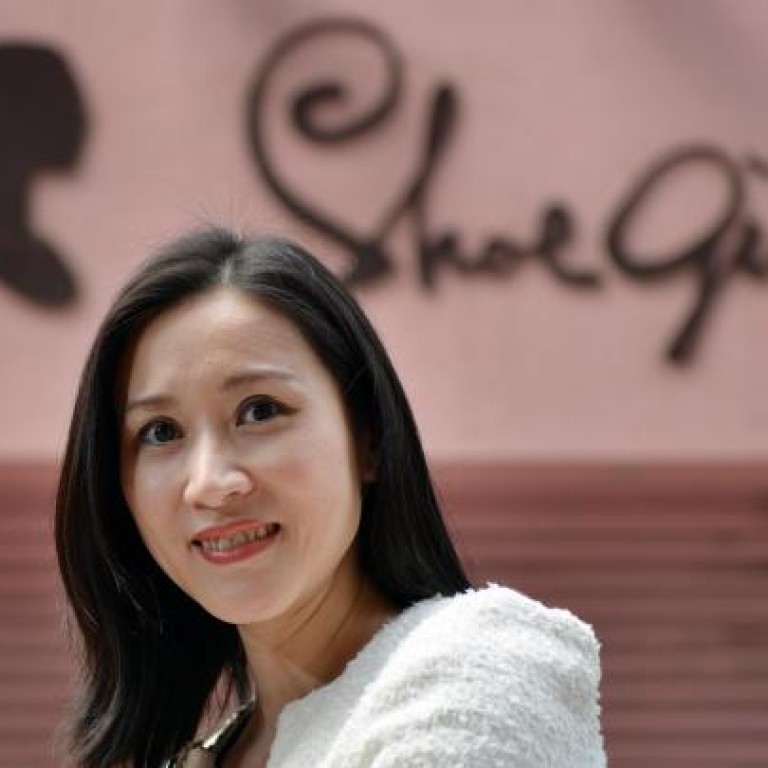
Soaring rents in prime locations push out local shops and restaurants
Leather-goods shop owner distraught as she joins the swelling ranks of retailers forced out of Causeway Bay by international luxury brands
Jennifer Cheung Wai-yin broke down in tears as she recounted the forced closure of her ground-floor customised leather goods store in Causeway Bay, one of the world's most expensive retail locations. "I had been operating the shop since 2004 and it was very painful to let it go. But I had no choice because of the 80 per cent spike in my rent to a six-digit figure," she said.
When the lease on the 600-square-foot shop at 35 Yiu Wa Street, two blocks from the Times Square commercial-office complex, came up for renewal recently, Cheung was shocked by the size of the increase.
I'll go online to save on crazy rents. I don't see any end to the rent increases in the coming months and years
"I endured a 50 per cent hike three years ago. But it's way too much this time around," she said.
The loss of her most trusted staff would also make it difficult for her set up again later at another location.
Sick and tired of sharp rent rises, Cheung said she was moving her business online, following in the footsteps of some of her retailing friends.
"I'll go online to save on crazy rents. I don't see any end to the rent increases in the coming months and years," she said.
Another long-standing store to suffer the same fate is Lee Yuen Congee Noodles.

After operating for more than four decades at 539 Lockhart Road, the restaurant closed last week after the landlord raised the rent to HK$600,000 a month from less than HK$300,000.
Cheung and Lee Yuen are part of a growing band of Hong Kong ground-level retailers and restaurant operators being forced out of prime commercial and shopping locations amid a continuing shake-up in retail tenancies, market observers say.
While retailers are moving online, restaurant owners are moving upstairs to cheaper locations.
Chinese restaurant Choi Kee was forced to move to an upper floor in Portland Street, Mong Kok, after the landlord doubled the rent when the lease expired last year, according to Midland Realty.
The rent for the upper floor space is half of what Choi Kee paid for the ground-level shop.
"Small street-level retailers and even restaurant operators simply don't have any choice but to move out of prime locations and transfer to non-prime areas where rents are more affordable," said Helen Mak, senior director for retail services at Colliers International.
"In the past five to six years, commercial rents in prime locations such as Central and Causeway Bay have soared three to four times.
"The spike is due to two major factors - lack of new supply of commercial premises and strong demand from foreign luxury- goods retailers for flagship stores in prime locations."
This demand is being driven by a desire to cater to the increasing number of mainland visitors flocking to Hong Kong.
Mak said the foreign brands also felt they could leverage their presence in Hong Kong for future expansion in the mainland.
Joe Lin Chi-ho, director for retail services at CB Richard Ellis, agreed demand by mainlanders for luxury goods, such as cosmetics and watches, was the main reason for the sharp rises in shop rents, especially in prime locations such as Causeway Bay.
"If small retailers and local chain stores can no longer afford to pay landlords' asking rents, they don't have much choice but to get out of street-level premises and move inside shopping malls, to the outskirts of urban areas, or even to the New Territories," he said.
"If the products that they're selling are not in demand by Chinese tourists, it's really difficult for them to match the rent that retailers of luxury goods are willing to pay."
While going online offers an escape from Hong Kong's skyrocketing commercial rents, getting lots of business from this route may be easier said than done, according to Colliers International's Mak.
"Online retailing in Hong Kong will work very well for those selling international brands, like Japanese and Korean cosmetics that are already being used by local consumers who need to replenish their supplies and who find mail orders convenient," she said.
"Hong Kong will certainly track the global online shopping trend but most likely at a slower pace than in other countries. Geographically, it's very convenient to go from one shopping mall to another here and most consumers would like to see and feel what they're buying, especially clothes."
Mak and Lin predict commercial rents will continue to rise this year.
"I expect commercial rents will rise an average of 12 per cent this year, with forecasts of about 52 million mainland visitors this year, up from 48 million last year," Mak said.
"This increase will certainly drive up openings of more luxury goods shops to cater to them."
Lin added: "Base rents are already very high and have already risen a lot in the past two years. So I expect that commercial rents to go up about 8 per cent this year."

